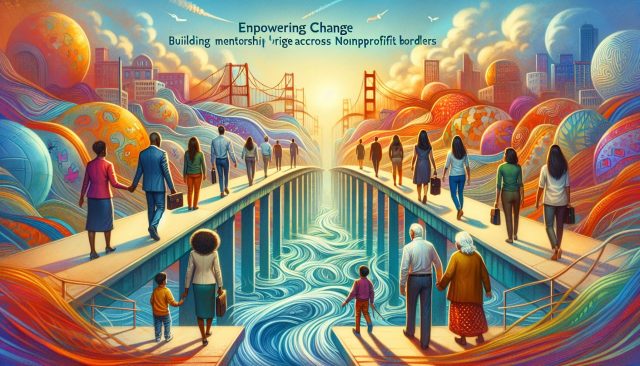The Future of Work: Five Transformative Takeaways for Workforce Resilience and Growth
The workplace is being reshaped by profound forces—automation, climate action, demographic changes, skills evolution, and inclusion. These trends, highlighted in the World Economic Forum’s (WEF) Future of Jobs Report 2025, offer not just challenges but also immense opportunities for those prepared to adapt. Through our analysis of the report, we’ve identified five critical takeaways shaping the future of work. Here’s an in-depth exploration of these transformative forces.
(You can explore the full WEF Future of Jobs Report 2025 here.)
1. Automation Is a Double-Edged Sword
Automation is projected to displace 92 million jobs by 2030 but will also create 170 million new roles, yielding a net increase of 78 million jobs. The evolving relationship between humans and machines is redefining task allocation. By 2030, work tasks will be evenly split between humans, technology, and collaborative systems, compared to 47% being human-dominated today.
Why It Matters:
The rise of automation challenges traditional roles but also offers opportunities to redefine work through augmentation, where technology enhances human productivity rather than replacing it. Workers equipped with AI literacy, creative problem-solving, and adaptability will thrive in this evolving landscape.
Path Forward:
Organizations must pivot from fearing automation to embracing augmentation. Reskilling efforts should focus on integrating human strengths—creativity, emotional intelligence, and complex problem-solving—with technological capabilities. The role of leadership here is pivotal: fostering a culture of lifelong learning and providing platforms for workers to experiment with new technologies without fear of failure.
2. The Green Economy: A New Frontier for Jobs and Skills
The green transition is a key driver of workforce transformation, with roles like renewable energy engineers and environmental scientists among the fastest-growing. However, the demand for green skills is outpacing supply, creating a critical gap that threatens the equitable rollout of climate initiatives.
Why It Matters:
As climate challenges intensify, the shift toward sustainable practices becomes non-negotiable. This transformation isn’t merely an environmental imperative; it’s an economic one, with significant job creation potential. Yet without targeted interventions, regions and industries may be left behind.
Path Forward:
Green-skilling initiatives must become a priority. Governments, corporations, and educational institutions should collaborate to build green skills academies and programs tailored to regional needs. Additionally, community-driven solutions—like localized renewable energy projects—can ensure inclusivity and resilience in this transition.
3. Demographic Shifts Are Redrawing the Global Talent Map
By 2050, 59% of the global working-age population will reside in low-income economies, while high-income regions grapple with aging populations and shrinking labor forces. This demographic shift creates a dual challenge: underemployment in youth-heavy economies and labor shortages in aging nations.
Why It Matters:
These trends highlight the need for global solutions to address localized labor market challenges. Failing to harness the potential of growing youth populations could leave hundreds of millions unemployed, stalling economic progress and exacerbating inequality.
Path Forward:
Digital platforms and remote work ecosystems can bridge global talent gaps. Policies promoting ethical labor practices and remote employment opportunities can create pathways for underserved populations to contribute to global markets. Additionally, fostering partnerships between nations—leveraging labor surpluses in youth-heavy regions to fill gaps in aging economies—can be a win-win.
4. Skills Instability Requires Urgent Action
By 2030, nearly 40% of today’s core skills will need to be reshaped, a figure slightly down from the pandemic-high of 57% in 2020. Analytical thinking, creative problem-solving, and resilience are emerging as critical skills, while manual dexterity and repetitive task proficiency are declining in relevance.
Why It Matters:
The speed of skill obsolescence demands a proactive approach to workforce development. Companies that fail to upskill their employees risk falling behind, not just in productivity but also in attracting and retaining talent.
Path Forward:
Employers must invest in continuous learning ecosystems that blend on-the-job training with digital learning platforms. Governments can play a role by subsidizing reskilling programs and incentivizing industries to adopt future-ready training initiatives. For individuals, the key lies in embracing lifelong learning, with a focus on adaptability and technological fluency.
5. Inclusion Is the Competitive Advantage of the Future
Diversity, equity, and inclusion (DEI) are no longer just ethical imperatives—they are strategic ones. Organizations that embrace DEI report 83% stronger talent pipelines, compared to 67% in 2023. Additionally, tapping into diverse talent pools can unlock innovation and resilience in uncertain times.
Why It Matters:
The workforce of the future will thrive on perspectives that challenge the status quo and drive creativity. Failing to prioritize inclusion risks not only social backlash but also a diminished ability to navigate complex global challenges.
Path Forward:
DEI initiatives should be embedded into organizational DNA, from hiring practices to leadership development. Technologies like AI can be leveraged to eliminate biases in recruitment and performance evaluations. On a broader scale, ensuring equitable access to education and job opportunities will be crucial in narrowing global disparities.
Conclusion: Embracing Transformation with Resilience
The future of work is not a distant reality; it’s unfolding now. Automation, the green economy, demographic shifts, skills instability, and inclusion are reshaping how we work, what we value, and who gets a seat at the table. For organizations and individuals alike, navigating these shifts requires courage, adaptability, and a commitment to shared progress.































